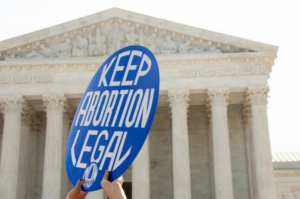Ohio Supreme Court turns away lawsuit aimed at state’s Vax-A-Million lottery
2 min read
The Ohio Supreme Court has turned away a challenge to Gov. Mike DeWine’s first COVID-19 vaccination incentive lottery without ruling on the merits of the program.
The court rejected the lawsuit, saying the group – Stand Up Ohio! – failed to meet the requirements to sue in the Supreme Court. The ruling said the group failed to prove how it or any of its members were personally harmed by the state’s Vax-A-Million lottery program.
The court did not decide on the merits of the case, only the group lacked standing to sue.
“Ohio Stands Up! cannot establish traditional standing to assert its claims,” the opinion, which was issued Thursday, read. “It is difficult to see how Ohio Stands Up!, a corporation, could be injured by discrimination based on vaccination status, or how it is directly harmed by the administration of an allegedly harmful vaccine to children.”
Justice Sharon Kennedy, in a concurring opinion, said the case does raise “weighty constitutional issues that demand resolutions.” She said the lawsuit should be brought in a common pleas court, rather than the Ohio Supreme Court.
Stand Up Ohio! identified itself in court documents as a nonprofit, “community-based legal advocacy organization comprised of Godfearing, patriotic volunteers from across Ohio.”
It filed a lawsuit with the Supreme Court in May, saying the state’s Vax-A-Million program was unconstitutional because the money used was not authorized by the Ohio General Assembly. It also claimed discrimination against those who were not vaccinated.
DeWine led nationwide vaccine incentive efforts earlier this year when he began the state’s Vax-a-Million lottery program, which gave away $5 million in federal money to five $1 million winners, along with five full college scholarships.
The program showed an initial boost in vaccinations, but a study said the program did little to increase overall vaccination numbers in the state.
The study, conducted by the Boston University School of Medicine using information from the Centers for Disease Control and Prevention, concluded reports that the state’s Vax-a-Million lottery program increased rates failed to factor in vaccinations expanded to ages 12-15.
DeWine rolled out a $100 state employee incentive in July and by mid-August, nearly 1,000 employees or their spouses took advantage of the offer.
A second lottery-style program that targeted teens and young adults with college scholarships took place in October.
This article was originally posted on Ohio Supreme Court turns away lawsuit aimed at state’s Vax-A-Million lottery







